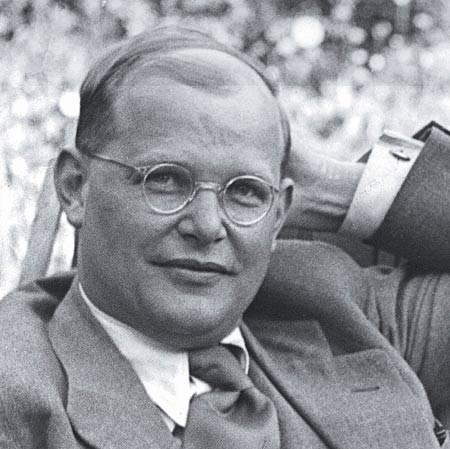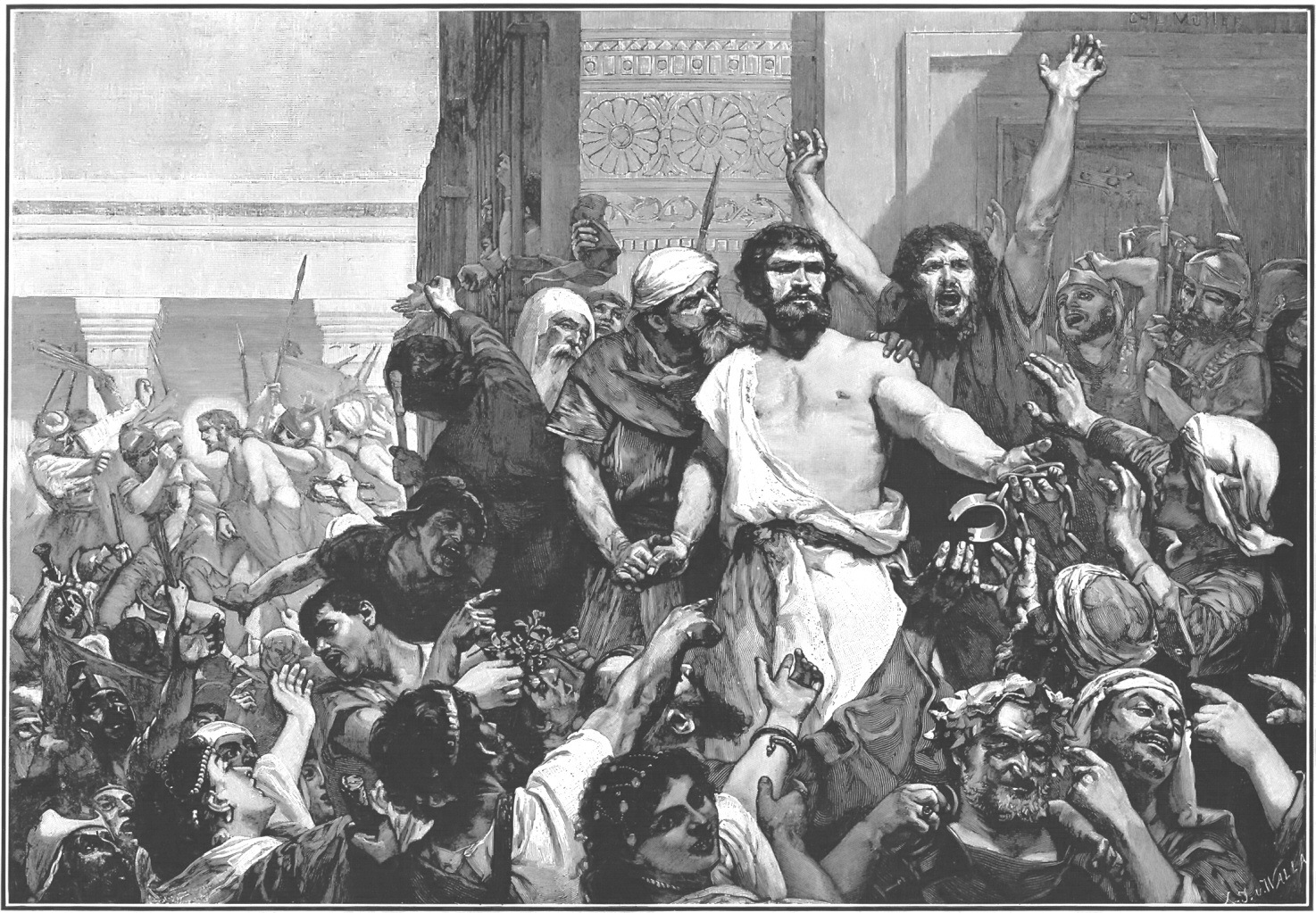Our country has seen some massive news stories break over the last couple of weeks.
On June 17th, 2015 a man walked into Emanuel African Methodist Church in downtown Charleston and murdered nine people. Multiple pictures of Dylan Roof, the man behind the trigger, have now surfaced that show him wearing icons of white supremacist groups. Of these pictures, we can see him sporting the flags of former Rhodesia as well as the apartheid-era South Africa. Another image also surfaced showing him holding his handgun as well as a Confederate Flag.
This terrible tragedy was another stark reminder to our country that the days of racial issues are far from being a thing of the past. Nine people are dead because of the horrible and terribly racist views of one man. One of the outcomes of this incident has been a debate over the place of the Confederate Flag in Southern states. I show my ignorance in that I was shocked to learn this flag was still flown over the capitol buildings of multiple states in the South. Comedian John Stewart accurately captured my response to this reality when he said, “In South Carolina, the roads that black people drive on are named for Confederate generals, who fought to keep black people from driving people on that road. That’s insanity. That’s racial wallpaper. You can’t allow that…The Confederate Flag flies over South Carolina and the roads are named for Confederate generals. And the white guy feels like the one whose country is being taken away from him. We’re bringing it on ourselves.”
I am grateful for the response many have had to this debate over the Confederate flag. This past Tuesday, the South Carolina House passed an amendment that would allow for removing the Confederate Flag from the Capitol grounds. Lawmakers in Mississippi are also seeking to have the Confederate Flag removed from their state flag. Terry McAuliffe, the Democratic Virginia Governor, has also called for state license flags that bear the Confederate Flag to be removed from circulation. By my estimate, these are all positive changes that need to take place – and I wholly support them.
The responses from these lawmakers are not the only public responses that I am grateful for. Many representatives across the American Church have also spoken out in strong support of removing the Confederate Flag from any context, especially the South Carolina Capitol. In a recent article, Russell Moore, President of the Ethics and Religious Liberties Commission (ERLC) for the Southern Baptist Convention issued this statement:
The Confederate Battle Flag may mean many things, but with those things it represents a defiance against abolition and against civil rights. The symbol was used to enslave the little brothers and sisters of Jesus, to bomb little girls in church buildings, to terrorize preachers of the gospel and their families with burning crosses on front lawns by night.
That sort of symbolism is out of step with the justice of Jesus Christ. The cross and the Confederate flag cannot co-exist without one setting the other on fire. White Christians, let’s listen to our African-American brothers and sisters. Let’s care not just about our own history, but also about our shared history with them. In Christ, we were slaves in Egypt—and as part of the Body of Christ we were all slaves too in Mississippi. Let’s watch our hearts, pray for wisdom, work for justice, love our neighbors. Let’s take down that flag.
I am in full support for standing with leaders like Dr. Moore in the removal of the Confederate Flag. Yet, what I can’t help but lament over is the fact that it took an incredibly racially charged attack for Christians to start talking about this issue. Why did we wait for nine people to die before we started speaking out against such a symbol of hate in our country? Hindsight is always 20/20, but to me this is just a no brainer. For that matter, why did it take the events of Ferguson and Baltimore – and so many others – to even recognize that race is still an issue in this country? While we are starting to catch up, it has taken us years to get there. In a hurting and broken world, we must be the people who have answers. We must be the people who are prepared to speak.
The problem is in order to speak we must first listen. And we Christians have done a terrible job at listening.
One of the biggest decisions of our time was handed down in the Supreme Court today. In a landmark case, the Supreme Court has decided in a 5-4 ruling that the Constitution grants same-sex couples the right to marry in the United States. Writing for the majority, Justice Anthony Kennedy writes, “They ask for equal dignity in the eyes of the law. The Constitution grants them that right.”
So here we are on the cusp of another huge event in recent American History. The law has now redefined what it means to be married. The question rises, what is going to be the response of the church? What are we going to say? What are we going to do?
I’ve been thinking a lot about the events surrounding the Confederate Flag debate in South Carolina. What is the biggest principle that the Christian church can takeaway from the events that have surrounded this debate? By my estimation, the lesson for Christians to learn is that we must learn to be proactive and not reactive. We must learn to anticipate the issues, and be prepared to speak when they arise. To that end, we must learn to listen to where people are hurting and struggling now – not later.
For many African Americans in this country, the Confederate Flag is a huge symbol of hate and discrimination. What has saddened me most amidst the Confederate Flag debate have been the reactions from many conservative friends of mine on social media – many of whom claim to be Christians. The Confederate Flag should remain – so they say – because Americans have the right to freedom of speech and expression. The Flag for them is not a symbol of hate, but a symbol of heritage. Therefore they have the right to keep it up. My response to these individuals is to plead with you – as your Christian brother, under the covering of the blood of Christ – listen to your brothers and sisters. Why would you fight for free speech at the cost of your brothers and sisters in Christ? Why is heritage more important to you than the lives of African American people in our country?
On a day like today, I am reminded that there are multiple symbols of hatred in our country. Some of these run surface level – Navy must beat Army (or vice versa). My favorite sports team – the Dallas Cowboys – are often made fun of by using pink pictures that say “Dallas Cowgirls.” But many of these symbols run deep, so deep that there are immense divides between large groups of people within our country. Racial slurs are still being used pejoratively to describe immigrants and people of different social statuses. Democrats and Republicans now hurl personally charged insults of character just to try and improve their own platform.
Christian friends, if we can learn anything from the aftermath of South Carolina, we must learn to be proactive, and to be the voice of hope in an incredibly dark society. We must learn to listen to the real struggles and the real pain of people around us – even with those who we have deep disagreements with.
When I start to think about other symbols of hatred in our country that we need to start being proactive about, there are a few that come to mind. They aren’t flags, but they are often flown on poles; wooden poles, made out of stakes that fly high a neon colored sign with writing in black permanent marker:
LEV. 18:22 GOD HATES FAGS
ADAM AND EVE NOT ADAM AND STEVE
REPENT OR BURN
The picket signs, the bumper stickers, the pejorative Facebook posts – all of which suggest that God’s grace extends only to our type of people and that somehow those caught in sexual sin are outside the bounds of God’s love, mercy and grace. These, my friends, are immense symbols of hate, and they’re coming out of our churches. And it is time for them to come down.
This isn’t a matter of public debate. This is an in-house issue, and we must address it. These terrible symbols of hate are not only un-Christian, but they are barring human beings from the love of our Savior. That is unacceptable.
In many ways, I am what you would call an orthodox, conservative Christian. I stand on the traditional view of marriage that the Christian church has held for over 2000 years, a view that the Old Testament and New Testament Scriptures resoundingly agree on. Yet for all of that being true, none of these things are even close to making an adequate reason for me to express even an ounce of disdain, repugnance, or hatred for individuals in the LGBT community. To suggest otherwise is not intolerant, it’s ugly and un-Christian.
The Bible makes it clear that all of us are made in the imago Dei – the image of God (Gen. 1:26). Jesus ups the ante on Christian love when he tells us that the entirety of the Christian law is summed up in our love for God and our love for our neighbors (Matthew 22:36-40). As my pastor tweeted today, “Brothers and sisters, love your neighbor as yourself. Nothing changes what our King calls us to. No caveats or exceptions.” Loving our neighbors – Christian or not – is not a suggestion, it is a command. Loving our neighbors does not mean we agree with them. But it does mean we value their human dignity, as people made after the image of God. It means we respect them. It means we listen to their pains and their struggles. It means we care for them when nobody else will.
Paul tells us in 1 Corinthians not to associate with those who ignorantly persist in sexual immorality (in this case, adultery) inside the Christian church. Yet, he does not tell us to disassociate with those outside the church – in fact he seems to suggest quite the opposite (1 Corinthians 5:9-13). We have a call to be the greatest friends with people from the LGBT community: to mourn with their mourning, to pray for them, to babysit their children, to take care of their dogs, to eat hamburgers with them in our backyards. Most importantly, we have the call to share the incredible hope of the gospel with them. Tell me, are you going to choose your “right to hold a sign” over the call to Christian love and obedience?
In humility, Christ came and laid down his life to save the wicked and the lost (Phil. 2:8). That’s me, and that’s you. He could’ve stayed in an elevated position of authority and required that we work our way to him, instead he came to us in all of our sin and brokenness and brought us back into the family of God. It is high time we learn what it means to emulate this kind of humility. We can no longer be people who hold on to our pride and desire to be right, requiring that people clean themselves up first to come to God. This is not the gospel, its works-righteousness. We must lay down our own pride and interests, our own lives, for the lives of our neighbors. Maybe then we’ll catch a glimpse of the immense love God has for us in Christ, the kind of love that gives a man to laying down his life for his friends (John 15:13).
Or is it going to take a so-called Christian walking into a Gay Pride parade with a gun for the sake of “religious freedom” before we start listening to the hurt of our LGBT neighbors? LGBT teens are already 4 times more likely than their peers to commit suicide, how many more do we need to lose before we start listening? We have an opportunity to learn and become proactive voices of hope – we must take it.
Let me be clear about what I’m not saying in this article. By no means am I equating the struggles of the African American community to the current arguments the LGBT community are making in the public square. The struggles of the LGBT community do not compare to the slavery, racism, persecution and systemic injustices committed against the African American community in this country. Race and sexual practice are not in any way equal. Charleston is not a platform for the LGBT community to stand on.
This past weekend, another one of my pastors preached an excellent sermon on Christian identity. It was a great reminder for me that we are no longer defined by our gender or our race – although they are still a part of us – but we are now primarily identified as Christians (Gal. 3:23-29). Children of God. Redeemed men and women under the blood of Christ. Therefore we must think about these issues differently than the rest of the world will think about them. We cannot come at issues of injustice as a white man or as a black woman, but as Christians united together. And I hope that as Christians, we can look at all symbols of hate and injustice in this world and stand together, united under the blood of Jesus.
I hope we can agree together to learn this lesson from the Charleston tragedy. We must continue to speak out against systemic and racial injustices being committed in this country, and we must be the wisest and loudest voices being proactive in that regard. We must be the greatest and loudest voices of love and truth in our culture. But we cannot be a one-issue church. We must take these lessons we are learning and keep the momentum rolling. We must stay on the front lines of issues like poverty and sex trafficking. We must continue to fight against the radical and frivolous discard of the lives of the unborn. And we must stand against discrimination, bullying, violence, persecution, and hatred towards God’s image bearers – even those we disagree with.
It is time for the signs of hate to come down. I hope you’ll join me.
The more one comes to know and understand Dietrich Bonhoeffer, the harder it becomes to deny a certain prophetic gift he had for understanding the problems in the church for years to come. He was writing and pastoring in the dawning age of modern theological liberalism, and this is evident in his critiques of the church of his day. What were only budding theological errors and problems in his day have now taken full bloom. Indeed, one wonders that if he was able to write “There is no theology here” about the teachings of Union Theological Seminary in 1929, what would he say about much of the Western Evangelical Church today?
These same kinds of questions appear in our minds when we approach Bonhoeffer’s classic The Cost of Discipleship. If the issue of cheap grace was apparent in his day, what would he think about our shallow proclamations of the gospel today? What would he make of the lordship salvation issue that was prominent in the late 80’s and early 90’s, that still invades many evangelical churches today, teaching that we can be a Christian but not a disciple? What would he make of the law-grace debates that blow up the Christian blogosphere every 6 months? Well, when we turn to the opening chapter of Discipleship, we have our answer. He’d lament the malignant state of the church.
Bonhoeffer understood the deep, necessary relationship between justification and sanctification in the Christian life. When these two aspects of our union with Christ are separated, we are left with cheap grace – “bargain-basement goods, cut-rate forgiveness, cut-rate comfort, cut-rate sacrament.” Cheap grace is left only as a system to take advantage of, where justification now no longer means the justification of the sinner, but of sin itself. Thus nothing about our sinful lives needs to change. If we change our lives to conform to the commandments of Jesus Christ, then we no longer trust in cheap grace, and that becomes too uncomfortable. So long as we conform to the world, we can still accept cheap grace and assure ourselves that our sins are forgiven. Within the bounds of a system of cheap grace, there is now forgiveness without repentance, baptism without discipline, and the Lord’s Supper without confession of sin.
Yet this is strikingly different than the kind of grace we should be accustomed to! The grace lived out in the Christian life is not a cheap grace, but a costly grace. “It is costly, because it calls to discipleship; it is grace, because it calls us to follow Jesus Christ. It is costly, because it costs people their lives; it is grace, because it thereby makes them live…Above all, grace is costly, because it was costly to God, because it costs God the life of God’s Son – and because nothing can be cheap to us which is costly to God.” If grace was costly for God, it is costly to us, which means we must strive for obedience to Christ’s commandments.
Martin Luther understood the problem with cheap grace, and Bonhoeffer explains his system of thought well. Luther understood that grace is the “result given by Christ himself to Christian life,” which means our life is not excused from discipleship in any way. Too many people instead take grace as a presupposition, therefore excusing any sin that they commit. Luther knew that we “sin boldly,” yet should believe and rejoice in Christ even more boldly. There is no escaping being a sinner in this life, yet we believe and rejoice in Christ and strive for obedience to him all the same.
Dietrich certainly knew of the problems facing the rising liberalism in churches of his day. We would be wise to meditate on his words and corrections for the church. He saw the cusp of the dam that has overflowed today, “Is the price that we are paying today with the collapse of the organized churches anything else but an inevitable consequence of grace acquired too cheaply? We gave away preaching and sacraments cheaply; we performed baptisms and confirmations; we absolved an entire people, unquestioned and unconditionally; out of human love we handed over what was holy to the scornful and unbelievers. We poured out rivers of race without end, but the call to rigorously follow Christ was seldom heard.”
If we surveyed the Evangelical landscape today, could this not be a summary of the problems we are facing today? Shallow churches that preach a shallow gospel, with little commitment other than an occasional stop at the church to be assured that our sins are still forgiven? Perhaps if we recognized that “the word of cheap grace has ruined more Christians than any commandment about works,” we would do a better job at stopping this train in its tracks. If we realized that living under grace means striving to live in the world without losing ourselves to it; if we realized that living under grace means giving up our lives for the one who laid down his life for us, we would have a better understanding of grace. Not a cheap grace, but a costly grace. As Bonhoeffer says, “Blessed are they for whom following Jesus Christ means nothing other than living from grace and for whom grace means following Christ.”
I hardly need to introduce the subject matter of pornography. All of us know what it is, and many of us are aware of the chokehold that it has on society today. What was once regarded as a habit or indulgence of men only is quickly being picked up by women as well. While many people are still either trying to defend porn or advocate for its use, numerous studies have shown the terrible and negative impact it has on the human brain.
In summary, pornography rewires our brain. It changes the way we think and causes our relationships with real human beings to suffer. In the marriage relationship, it becomes increasingly harder for the partner who is hooked on porn to be intimate because they are getting their pleasure and intimacy from a computer.
As a result of our brains becoming rewired, our desires and thinking changes. Christians are not immune to this. While our hearts are made to love, cherish and desire Christ above all things, instead a rotten seed is planted that shifts our attention and love toward a sinister, glory-stealing idol. To fight this rewiring in our brains, we don’t just need behavior change or accountability but we need a heart change that reorients our desires and thinking!
Pornography, like most sins we face, is a problem that we say we want to fight – until the temptation hits. It is often in these moments where the rotten seed blossoms and overwrites what we know to be true about Christ our Savior and the reality of our sin. For this reason, it is helpful for us to know how Scripture applies to us in those moments, helping us to remember the weight of our sin and the beauty of Christ.
Below are 8 questions to ask yourself in the midst of facing a temptation from pornography. These questions are based on the beautiful passage, Philippians 2:1-11. They are also adapted from a series of questions laid out by Timothy Lane and Paul Tripp in their book how people change (page 168).
1. Porn, you look beautiful to me right now, but when did you ever leave your place of prominence and glory to humble yourself for me?
2. Porn, when did you ever enter my world to suffer on my behalf?
3. Porn, when did you ever shed your blood so that I could be cleansed from my sin?
4. Porn, when were you ever raised from the dead on my behalf?
5. Porn, when did you ever promise to give me new life and power?
6. Porn, when did you ever promise to send the Holy Spirit that would help me to please God?
7. Porn, when did you ever promise to intercede for me to my Father in heaven, so that I could be strong during this trial?
8. Porn, when did you ever promise to come again and redeem me from the things that capture me and make me their slave, like you?





